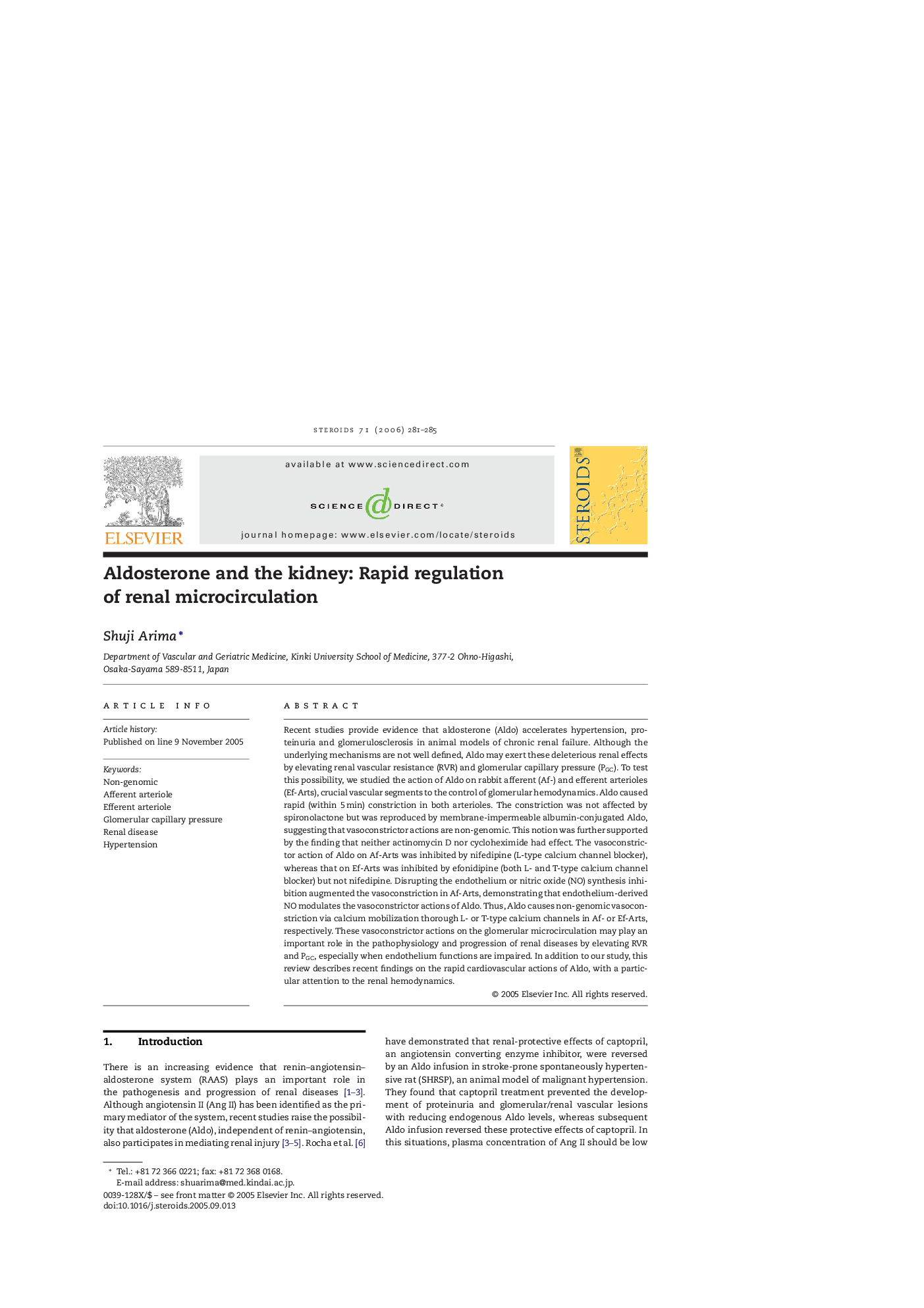| Article ID | Journal | Published Year | Pages | File Type |
|---|---|---|---|---|
| 2029052 | Steroids | 2006 | 5 Pages |
Recent studies provide evidence that aldosterone (Aldo) accelerates hypertension, proteinuria and glomerulosclerosis in animal models of chronic renal failure. Although the underlying mechanisms are not well defined, Aldo may exert these deleterious renal effects by elevating renal vascular resistance (RVR) and glomerular capillary pressure (PGC). To test this possibility, we studied the action of Aldo on rabbit afferent (Af-) and efferent arterioles (Ef-Arts), crucial vascular segments to the control of glomerular hemodynamics. Aldo caused rapid (within 5 min) constriction in both arterioles. The constriction was not affected by spironolactone but was reproduced by membrane-impermeable albumin-conjugated Aldo, suggesting that vasoconstrictor actions are non-genomic. This notion was further supported by the finding that neither actinomycin D nor cycloheximide had effect. The vasoconstrictor action of Aldo on Af-Arts was inhibited by nifedipine (L-type calcium channel blocker), whereas that on Ef-Arts was inhibited by efonidipine (both L- and T-type calcium channel blocker) but not nifedipine. Disrupting the endothelium or nitric oxide (NO) synthesis inhibition augmented the vasoconstriction in Af-Arts, demonstrating that endothelium-derived NO modulates the vasoconstrictor actions of Aldo. Thus, Aldo causes non-genomic vasoconstriction via calcium mobilization thorough L- or T-type calcium channels in Af- or Ef-Arts, respectively. These vasoconstrictor actions on the glomerular microcirculation may play an important role in the pathophysiology and progression of renal diseases by elevating RVR and PGC, especially when endothelium functions are impaired. In addition to our study, this review describes recent findings on the rapid cardiovascular actions of Aldo, with a particular attention to the renal hemodynamics.
